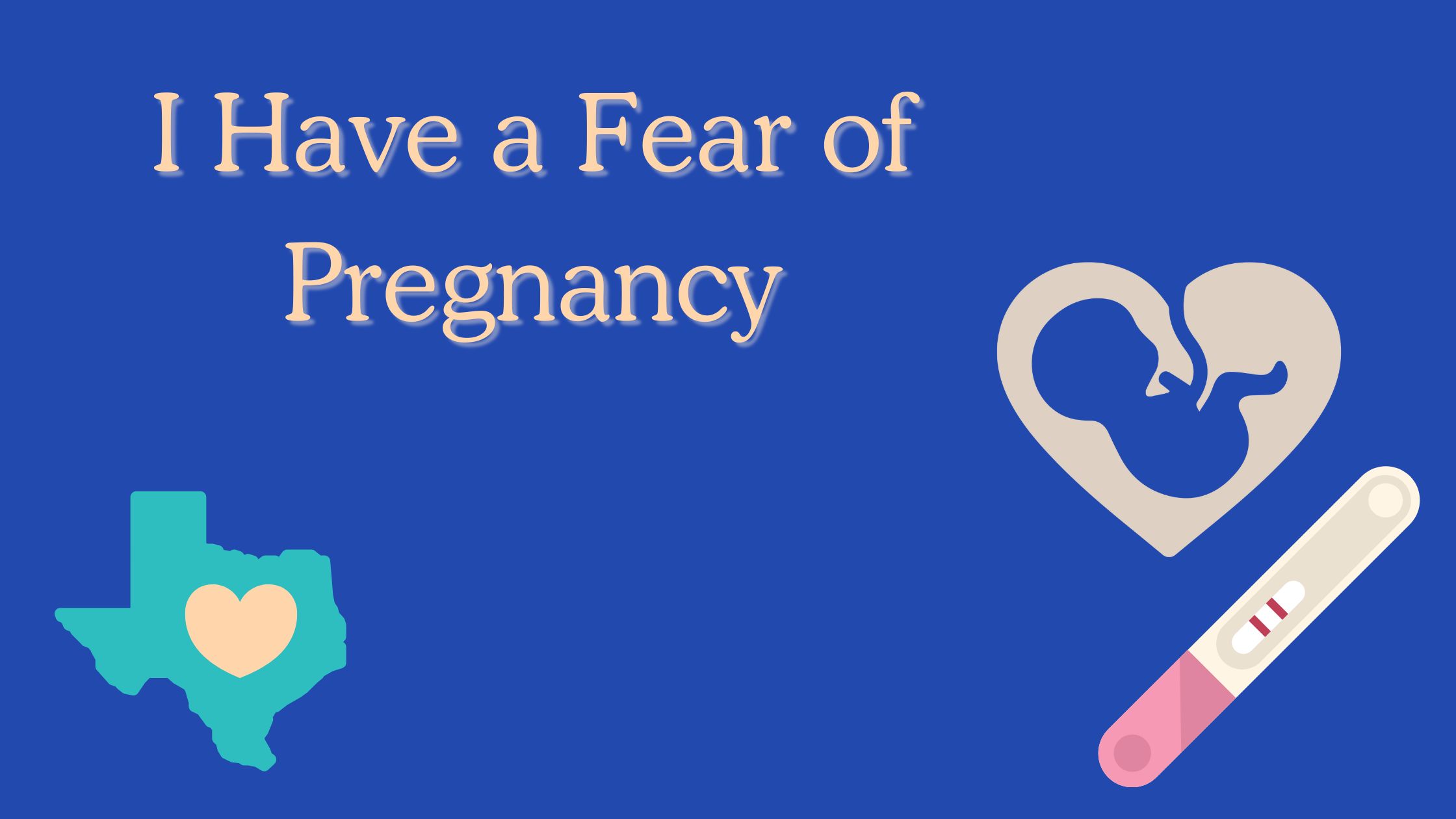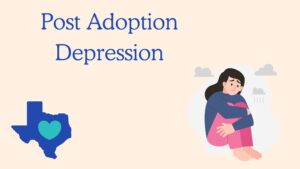
Pregnancy is often described as a beautiful journey—but for many people, it can also be a deeply frightening experience. If you’re struggling with a fear of pregnancy, you are not alone. In fact, fear surrounding pregnancy is more common than most people realize, and it can range from general anxiety to intense panic about the idea or reality of being pregnant. This fear can significantly impact a woman’s life, affecting her overall well-being and emotional health.
Whether you’re afraid of giving birth, bodily changes, complications, or even being pregnant at all, it’s important to know that your feelings are valid. And more importantly—you have options, support, and the right to make the decision that’s best for you. Social support from family, friends, or professionals can play a crucial role in helping you manage fear of pregnancy and feel more in control.
In this blog, we’ll explore what causes fear of pregnancy, how to cope, and what to do if you’re pregnant and feeling overwhelmed. We’ll also introduce adoption as a supportive, empowering option for those who decide parenting isn’t the right path.
What Is Fear of Pregnancy?
Fear of pregnancy can take many forms, and for some, it’s a specific condition known as tokophobia—an extreme fear of childbirth or pregnancy. Tokophobia is considered a specific phobia and a type of anxiety disorder, characterized by persistent, irrational fears related to pregnancy, childbirth, or medical procedures. But even without a formal diagnosis, you might feel anxious, panicked, or overwhelmed at the thought of becoming or being pregnant; some people may be diagnosed with related mental health conditions.
You may:
- Feel afraid of getting pregnant, even with contraception
- Avoid relationships or intimacy out of fear of pregnancy
- Panic at the idea of labor or delivery
- Feel anxious or fearful about welcoming a baby
- Feel intense dread if you’re already pregnant
- Struggle with intrusive thoughts or worst-case scenarios
Some people experience excessive fear or even severe fear that can interfere with daily life.
These fears aren’t irrational or shameful—they’re responses to deeply rooted concerns that deserve attention and support.
Common Causes of Fear of Pregnancy
Fear of pregnancy can come from a range of emotional, physical, and social experiences. Various factors—including psychological, social, and medical influences—can contribute to this fear. Here are a few common causes:
1. Fear of Pain or Childbirth
Many people are terrified of labor and delivery, with labor pain being one of the most common sources of fear. Horror stories from others, traumatic images in the media, or personal experiences can all lead to intense anxiety about the pain of childbirth or potential complications. For some, fear of vaginal birth specifically may cause them to consider alternatives such as a Caesarean section (C-section).
2. Bodily Changes
Pregnancy brings dramatic changes to your body—weight gain, hormonal fluctuations, and loss of control over your own physical self. For some, this is extremely distressing, especially for those with past trauma, body image struggles, or eating disorders.
3. Fear of Medical Complications
Worries about miscarriage, stillbirth, high-risk pregnancy, or medical emergencies can create constant anxiety. If you’ve experienced pregnancy loss or medical trauma in the past, those fears may feel even more real.
If you have concerns about pregnancy complications, it is important to seek medical help and consult a doctor or doctors for guidance and reassurance.
4. Emotional or Mental Health History
People who struggle with anxiety, PTSD, or depression—recognized mental health disorders—may find that pregnancy intensifies their symptoms or creates new ones. Psychiatric disorders, such as anxiety disorder, depression, and postpartum depression, can be related to fear of pregnancy. The hormonal changes alone can be overwhelming and difficult to manage. If symptoms become overwhelming or interfere with daily life, it is important to consult a mental health provider for an accurate diagnosis and support.
5. Lack of Support
If you’re facing pregnancy alone or without emotional or financial support, fear can escalate quickly. Friends, family members, mothers, and parents are important sources of support for people facing pregnancy fears. The idea of raising a child without help may feel unbearable—and that’s a valid concern mothers may have.
6. Trauma or Abuse
Pregnancy can be particularly triggering for individuals who have experienced sexual trauma, domestic abuse, or reproductive coercion. Trauma can lead to avoidance of sexual contact or sexual activity due to fear of pregnancy, which may impact emotional well-being and relationships. The experience may feel like a loss of control or even a violation, which adds to the fear.
What to Do If You Have a Severe Fear of Pregnancy
Acknowledging your fear is the first step. From there, you can explore practical ways to manage your emotions and make decisions that prioritize your well-being. Various treatments, including therapy and medication, are available to help manage these fears. Worry and anxieties about pregnancy are common, but with the right support, they can be managed effectively. Here are some strategies:
1. Talk to a Mental Health Professional
A licensed therapist—especially one trained in perinatal mental health—can help you unpack the root of your fears, learn coping strategies, and process any past trauma that might be influencing your experience.
- Ask about Cognitive Behavioral Therapy (CBT), which can help reframe fearful thoughts.
- Consider exposure therapy if you’re avoiding anything related to pregnancy.
- Look into trauma-informed counseling if you’ve experienced abuse or medical trauma.
2. Learn About Pregnancy in a Safe, Supportive Setting
Education can often reduce fear—especially when it replaces myths and worst-case scenarios with facts. Try prenatal classes or guided sessions with a doula, nurse, or midwife. Choose resources that offer empathy, not pressure.
- Ask questions without judgment.
- Tour birthing centers or talk to professionals to understand what support is available.
- Focus on what’s in your control rather than what’s not.
3. Build a Support System
Even one trusted person—whether a friend, counselor, advocate, or partner—can make a huge difference. If you’re feeling alone, look into pregnancy support groups or reach out to organizations like Texas Adoption Center, which provides non-judgmental support for women facing unexpected pregnancies. Building a strong support system can help people feel more confident about giving birth to children.
4. Practice Self-Compassion
You’re allowed to be scared. You’re allowed to say this is hard. Try not to judge yourself for feeling the way you do. What you’re experiencing doesn’t mean you’re weak, broken, or unfit—it means you’re human.
Step-by-Step: How to Cope With or Prepare for Pregnancy When You’re Afraid
If you’re facing a fear of pregnancy—whether it’s the idea of becoming pregnant or you already are—the thought of what to do next can feel paralyzing. Breaking things down into small, manageable steps can help you regain a sense of control and reduce anxiety.
Addressing your fears and seeking proper support can promote a healthy pregnancy and a more positive experience. Severe anxiety or excessive fear can affect your daily life, sleep, and overall wellbeing, and may require professional support. Here’s a step-by-step guide to help you move forward at your own pace.
Step 1: Acknowledge Your Fear Without Judgment
The first step is simply being honest with yourself. Say it out loud: “I’m afraid of pregnancy.” It’s normal to feel concerned about pregnancy, and acknowledging these feelings is an important part of the process. Recognizing your emotions is not weakness—it’s bravery. Remind yourself: Your feelings are valid. Fear doesn’t mean you’re incapable; it means you’re aware. Talking openly about your fears with trusted friends, loved ones, or healthcare providers can help you feel supported and less alone.
Step 2: Educate Yourself Safely
Fear often thrives on the unknown. Start learning more about pregnancy and childbirth from reliable, non-alarmist sources.
- Read articles or books from trusted medical organizations
- Take a virtual or in-person prenatal class
- Watch videos that explain what happens during each trimester
- Ask healthcare providers questions at your own comfort level
Keep in mind: You’re in control of how much and how fast you learn.
Step 3: Identify What Scares You Most
Not all fears about pregnancy are the same. It’s important to understand the differences between normal worries and more severe fears, such as distinguishing everyday concerns from conditions like tokophobia. Are you afraid of pain? Of labor? Of losing control of your body? Of parenting afterward? Write down your top fears to identify what you need the most support with. Knowing your exact fears helps you create a targeted plan for coping.
Step 4: Build Your Support Team
Fear becomes more manageable when you don’t have to carry it alone. Find at least one trusted person to talk to about your feelings—this could be:
- A therapist
- A close friend or family member
- A pregnancy counselor or doula
- A caseworker from Texas Adoption Center
Ask yourself: “Who helps me feel safe when I’m overwhelmed?”
Step 5: Make a Personal Pregnancy Plan (Even If You’re Still Unsure)
You don’t have to be committed to one path yet, but sketching out a plan can help reduce panic. For example:
- What medical care would I need or want?
- Who would be with me at appointments or during delivery?
- What kind of pain management options would I consider?
- If parenting isn’t for me, what would an adoption plan look like?
By outlining possibilities, you shift from being reactive to being proactive.
Step 6: Practice Mindfulness & Grounding Techniques
When fear feels overwhelming, learning how to ground yourself in the moment can help. Try:
- Deep breathing exercises
- Progressive muscle relaxation
- Journaling your thoughts without censoring
- Guided meditations (search “pregnancy anxiety” or “trauma-informed mindfulness”)
The goal isn’t to erase the fear—but to soothe your nervous system so you can function through it.
Step 7: Consider All Your Options Without Pressure
As you prepare, remember: you have the right to explore every path. That includes parenting, adoption, or seeking medical advice about alternatives.
Texas Adoption Center can walk with you through every scenario without judgment or pressure. Our goal is to help you feel supported, not steered. Whatever you decide, we’ll support your choice with compassion and care.
What If I’m Already Pregnant and Feeling Overwhelmed?
If you’re pregnant right now and overwhelmed with fear, please take a deep breath. You are not trapped. You have options. You are not alone. Many pregnant women experience similar feelings, and it’s normal to have concerns during pregnancy.
Here’s what you can do:
- Reach out to someone today—a therapist, pregnancy counselor, or someone at Texas Adoption Center.
- Take it one step at a time. You don’t have to figure everything out today.
- Know that your feelings are valid—even if they don’t make sense to others.
- Explore your choices—including adoption, parenting with support, or connecting with agencies that help women through crisis pregnancies.
Fear of pregnancy can significantly impact your daily life, but support and options are available to help you move forward. Fear of pregnancy doesn’t mean you won’t make the right decision for you. It means you’re thinking carefully—and that’s something to be proud of.
Considering Adoption as a Loving Choice
If pregnancy feels too overwhelming to continue with parenting, adoption may be an option worth exploring.
Adoption is not giving up. It’s a decision made with love, courage, and hope for your child’s future.
At Texas Adoption Center, we work with women across Texas to create custom adoption plans that reflect your wishes. You choose the level of openness, the adoptive family, and the kind of relationship you want going forward.
We can help with:
- Medical and pregnancy-related costs
- Housing and transportation
- Counseling and emotional support
- A safe, supportive space to make your decision
You don’t have to decide today. But knowing adoption is an option can bring comfort if parenting feels impossible and pregnancy feels too heavy to carry alone.
FAQs
What causes fear of pregnancy?
Fear of pregnancy can stem from anxiety about pain, trauma, past medical complications, body changes, or lack of emotional and financial support. It’s also common in people with existing mental health conditions. In some cases, fear of pregnancy can be a health condition that requires support and professional care.
Is fear of pregnancy normal?
Yes. Many women—even those who go on to parent—feel anxious or afraid about pregnancy. You are not alone, and your feelings are completely valid.
What is tokophobia?
Tokophobia is an intense, clinical fear of pregnancy and childbirth. It is a recognized disorder and a specific type of anxiety disorder that can be diagnosed by a mental health professional. There are two types: primary tokophobia, which occurs in women who have never been pregnant and often begins in adolescence, and secondary tokophobia, which develops after a traumatic obstetric experience such as difficult labor, miscarriage, or stillbirth. Tokophobia can lead to panic attacks, avoidance behaviors, and depression. Therapy and support can be incredibly helpful for those experiencing it.
Can I still choose adoption if I’m afraid of being pregnant?
Absolutely. Adoption is a loving, compassionate choice available to you during any stage of pregnancy. The team at Texas Adoption Center can help you explore this option at your own pace, without pressure or judgment.
You Deserve Support—Whatever You Decide
Whether you’re afraid of becoming pregnant, already pregnant and overwhelmed, or unsure about what comes next, know this: You are not broken. You are not weak. You are not alone.
Fear is a signal—not a sentence. And with the right support, you can make a decision that honors both your well-being and your baby’s future.






